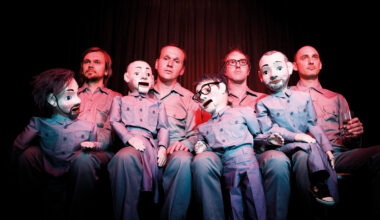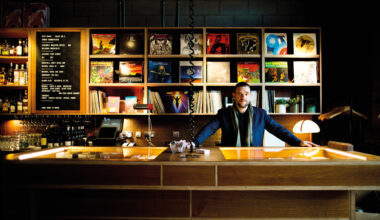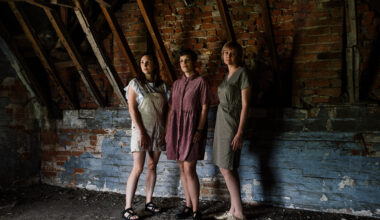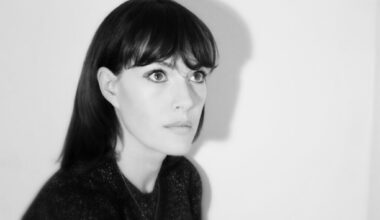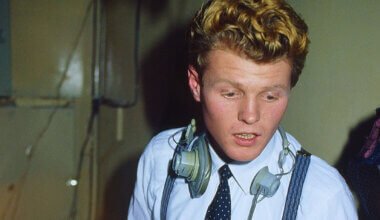At the age of 77, after 50 years of making a huge array of music, ranging from jazz-inflected folk to ambient soundscapes to operatic trip hop, the unique talent of Beverly Glenn-Copeland is finally being recognised
“Because I couldn’t be categorised, the record companies at the time didn’t know what to do with me,” says Beverly Glenn-Copeland, reflecting on his early work and how he has found a new audience in the modern era. “Young people these days are very worldly and have tastes that cross all kinds of genres. I guess the time was just right.”
Copeland has been ahead of the curve in so many ways. The 77-year-old black Canadian artist has released revolutionary records that blend folk and jazz, made synth-laden ambient masterpieces, composed operatic trip hop gems, and even written songs for ‘Sesame Street’. Outside of his remarkable musical career, Beverly Glenn-Copeland identified as a man in the mid 1990s, long before today’s widespread awareness of transgender people. Now a trans activist, he talks openly about his life to help and encourage others.
At the time of their release, Copeland’s extraordinary albums were too progressive for most people, but over the years they’ve become holy grails for record collectors, changing hands for eye-watering sums. Recently, thanks to some timely reissues of his work, he’s gained widespread popularity for the first time in his life. He has lectured at the Red Bull Music Academy and had a documentary made about his music.
“Every once in a while, I’d find out that someone had paid two-and-a-half thousand dollars for one of my albums,” he says. “I couldn’t relate to it. It’s their business, but two-and-a-half thousand dollars!? Well, that’s interesting, but not really to me! When more and more people started getting my music, I was happy, because all those years that I was writing, it was because I had to write, but also because I had always hoped I could offer something.”
Speaking to Copeland at his home in Canada via Skype, he’s in a sprightly mood. He’s a warm presence, laughing over an anecdote one minute, and answering a question seriously and at length the next. Our conversation is occasioned by the first compilation of his songs, ‘Transmissions: The Music Of Beverly Glenn-Copeland’, which has just come out on the Transgressive label. Ranging from the delicate folk guitar finger-picking of his earliest material, through the dreamy synth visions of his 1980s ambient-inflected songs, and into newer tunes that borrow famous breakbeats and combine them with sublime melodies, it promises to further broaden his fan base.
“My publisher and manager pored through everything I had ever written and found all kinds of stuff,” says Copeland. “They got together with their buddies at Transgressive who said, ‘We’d like to do this retrospective’. They sent me a list of the things they wanted to put on it and I said, ‘Yeah, go for it’.”
‘Transmissions’ documents a singular life lived through music. From the earliest point in his childhood, Copeland was surrounded by resonant frequencies. He heard classical, big band and folk records around the house when he was growing up. His father played piano too. His parents took him to the ballet and were keen that he should be exposed to the best of European culture.
“A few years before she died, my mother told me, ‘I used to play the piano when you were in utero, ’cause I wanted you to become a musician’,” he says.
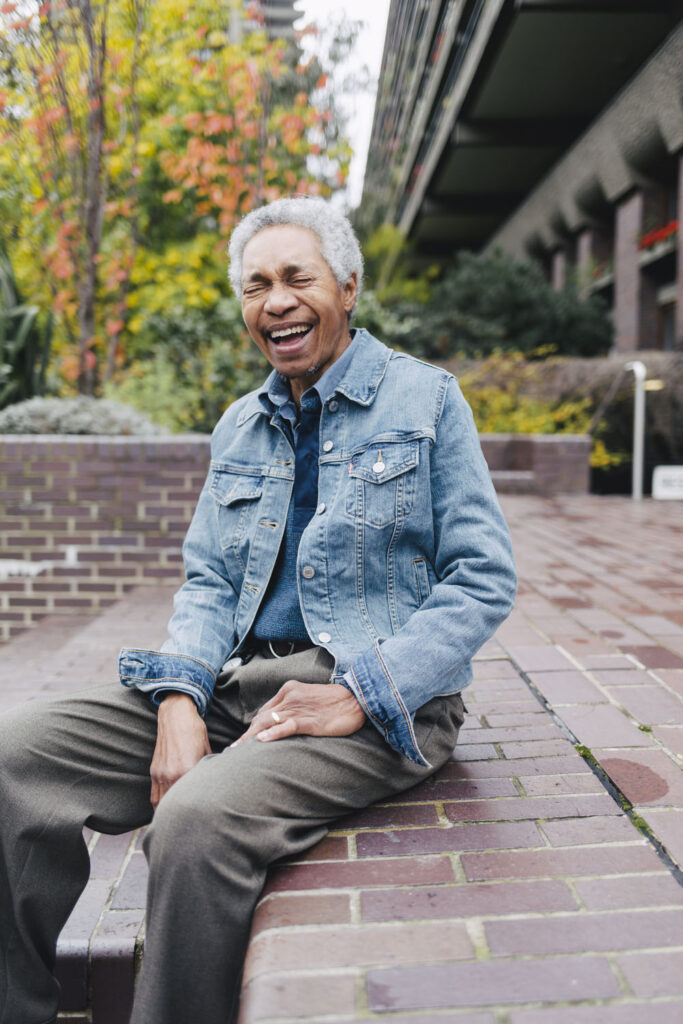
One of the first black students to attend McGill University in Montreal, Copeland was already studying voice when one of his coaches played him German lieder singing for the first time.
“He was a lieder specialist,” says Copeland. “He introduced me to it and I flipped out because I never cared for opera. I didn’t get it. In the old days, it was very stilted. If you didn’t speak the language, you didn’t know what they were singing, and if you hadn’t studied the score you had no idea. Now I love it, but then I was like, ‘Give me a break’. But when I heard lieder, it felt like I’d known it my whole life and I just went for it.”
Still, a career as a classical singer wasn’t to be. Copeland realised he had another calling. Fired up by the work of Bob Dylan and Joan Baez, he traded in his vocal training and his oboe for a guitar.
“If you believe in multiple lifetimes, it was as if I was thinking, ‘I’ve already done this, that’s why I love it so much’. But in this lifetime, there are so many other aspects of music that I also love. One day, I had this understanding. I was just about to go off to Germany to continue my studies in lieder, but I stopped myself. The songs had started coming to me and they had all kinds of different elements in them.”
His first album, ‘Beverly Copeland’, was released in 1970. It contained melancholic, jazz-tinted folk beauties such as ‘Don’t Despair’ and ‘Durocher’, both of which are included in the ‘Transmissions’ collection. Back then, there was little else around that sounded like Copeland’s music.
“I would present labels with songs for a potential album. One would sound like it was jazz, but then the next would sound like something else, and they didn’t know what to do with that. They were used to classifying things and my songs didn’t match a category.”
‘Beverly Copeland’ and its follow-up ‘Beverly Glenn-Copeland’ only sold in modest quantities in their day, and Copeland found himself heading in a new direction when a friend offered him a role in a Canadian children’s TV show called ‘Mr Dressup’. He became a regular character on the programme for 25 years, writing, acting and singing, and went on to appear in other kids’ TV shows, including ‘Sesame Street’. Although he enjoyed the experience, it was tinged with melancholy, which is evident as Copeland’s countenance turns from happy reminiscence to a sadder expression when asked about it.
“It was a double-edged sword. Children bring out the part of me that wants to be goofy, hop around, whatever. I loved to entertain them, to write and sing songs they could relate to. But it was difficult for me, because I had to fudge who I was. I couldn’t come out as gay, which actually I wasn’t anyway. I certainly couldn’t come out as transgender. I was atypical in the way I presented myself too. I knew the world was not yet ready for that conversation. So it was painful in that way.”
In 1995, Copeland identified as a trans man. Up until that point, he hadn’t had the means to express who he really was. He’d never even heard the term transgender, but a book changed everything for him.
“I’d had this book for a long time, but I’d never really read it,” he explains. “What it was about didn’t get into my consciousness. I read it properly when I was down visiting a friend in Cape Cod. I had taken a break and was lying on a beach. I started reading and the first part was detailing the writer’s early childhood memories. Something went ‘Boom!’ in my being and I thought, ‘Woah, these are my memories’. I sat up from lying prone and went, ‘Oh my goodness, I’m transgender’.”
Since then, Copeland has used his platform to talk about being transgender, hoping to help others and to combat prejudice towards trans people.
“I became aware that more people were struggling with it. Just because it was in the conversation now didn’t necessarily mean that people were not having a hard time around it. So I thought, ‘I’m into supporting however I can and talking about it to audiences’. I wanted to educate in whatever small way I might be able to. We are always afraid of what we don’t know and it’s also about who we don’t know. But if you’ve come to know someone personally, it’s very hard to hold those prejudices any more.”
In the 1980s, Copeland became interested in a new aspect of music. Setting up a Yamaha DX7 and a drum machine in his home studio, he began recording electronic ambient compositions that matched his expressive voice with shimmering synth textures. The tracks, which appeared on his 1986 cult classic album ‘…Keyboard Fantasies…’, sounded of a piece with other new age electronic records of the era by Laraaji, Midori Takada and Iasos. Not that Copeland had any idea about ambient back then.
“I wasn’t listening to any music at that time,” he says. “Nothing in that category anyway. I didn’t really know it, so I didn’t have any guides about what was typical. I was just doing what I was doing.”

What he liked about synths was they enabled him to create whole soundscapes entirely alone. He could get close to approximating the sound of an orchestra with his DX7.
“I loved the fact they offered me an orchestral palette, even though in the early days you had to squint your ears,” laughs Copeland. “They gave me the opportunity to actually hear more of what I was hearing in my head, because I didn’t have the capacity, the physical or financial means, to go out and hire a cellist, a flute player, someone that played traps, all of those different things. Not to mention the fact that this silicon format offered sounds that nobody was producing, except the silicon.”
‘…Keyboard Fantasies…’ was reissued on the hip Canadian labels Invisible City Editions and Séance Centre in 2016 and 2017, while Copeland’s ‘Primal Prayer’ album, which originally came out in 2004 under the name Phynix, was re-released last year. Up there with some of his finest material, ‘Primal Prayer’ found him still experimenting with sound, the track ‘In The Image’ combining his emotive vocals and piano playing with the famous ‘Apache’ breakbeat. The sampling was something he stumbled upon by chance. When asked about it, he retrieves the drum machine he used and holds it up to the camera.
“It’s a Roland HandSonic,” he says. “My partner suggested I get it because I love hand percussion. I was exploring it and there were beats in it already. I went, ‘Wow, listen to that’. I didn’t realise that they were sampled from somebody else. I didn’t know anything about how it worked, I just had this tool in my hands. I included beats in some of the tracks that were already recorded and then I added my own beats over the top of them. Later somebody said, ‘I’m so glad you used that particular sample, it’s one of my favourites!’.”
‘La Vita’, another of the highlights of ‘Primal Prayer’, features Copeland singing in a soaring operatic tone, a return (of sorts) to his lieder training. He sings in Italian, a language he’d only been learning for a year at the time the track was recorded. He describes how he woke up one morning and the vocal flowed out.
“I can tell you, I did not speak this language!” he declares. “At the end of the day, I couldn’t even speak what little I’d been able to earlier on. I just woke up and this thing was in front of me. That part of this music was singing itself and I wrote it down. That whole album ended up with me being able to explore aspects of myself I had not explored in a long time.”
Get the print magazine bundled with limited edition, exclusive vinyl releases

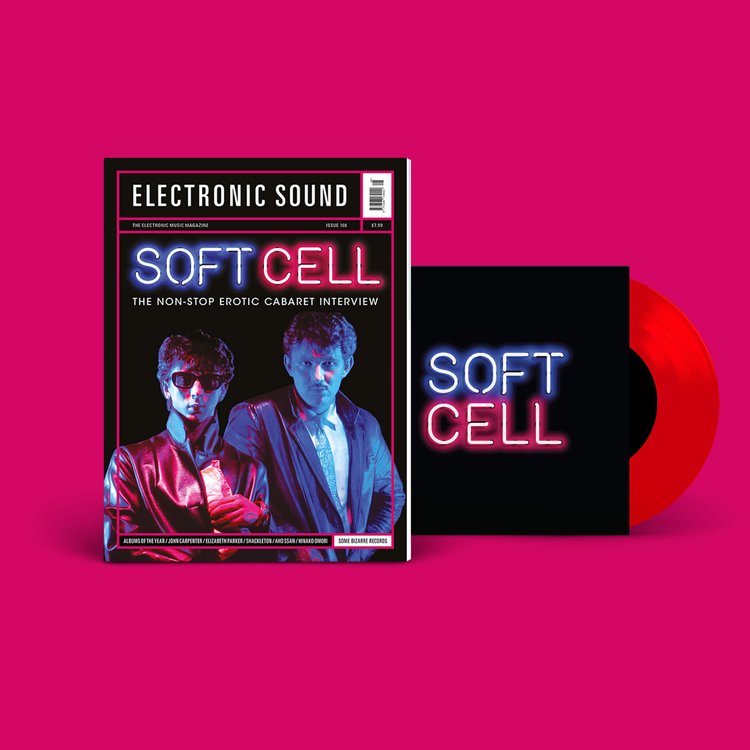
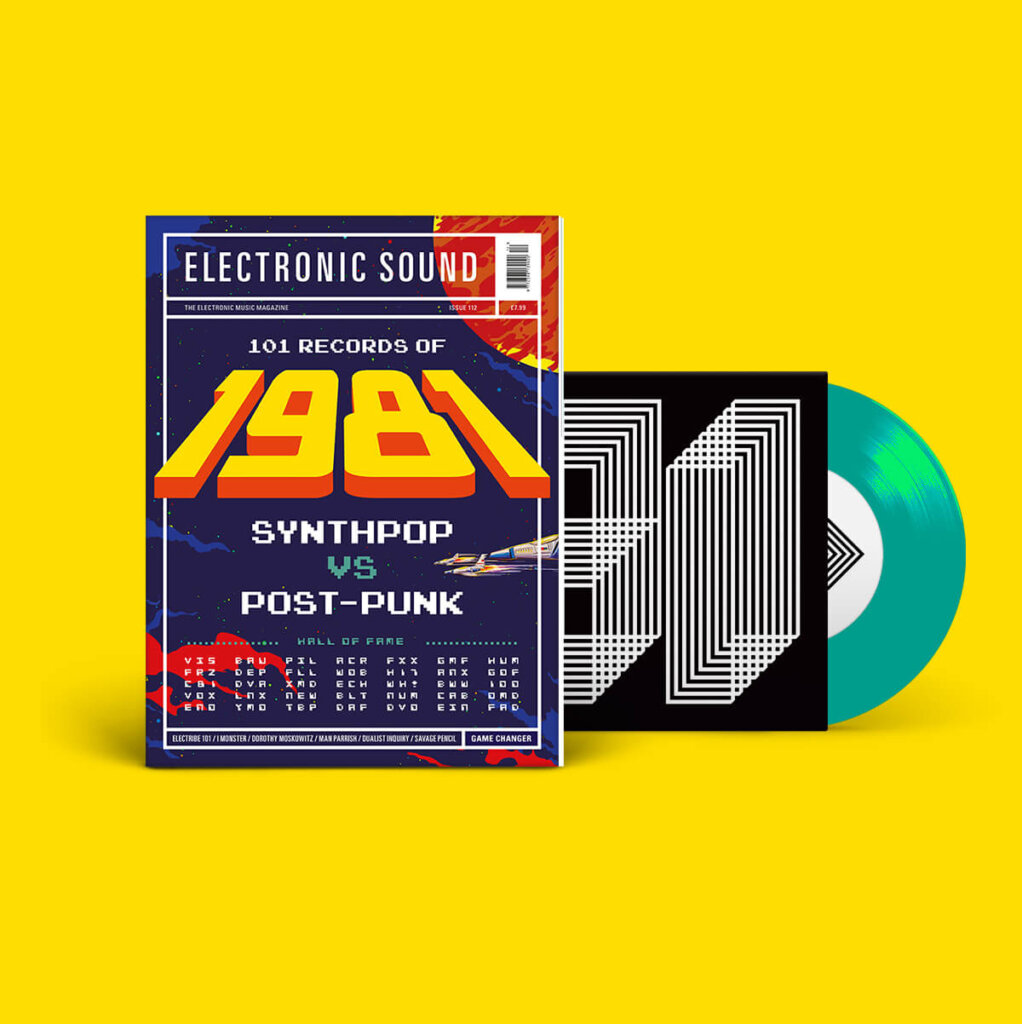
The composition process behind ‘La Vita’ was a mystery, seemingly arriving fully formed from the ether. Copeland believes all creativity stems from this same source and it’s just a matter of tapping into it.
“It’s not that I decide to write, I have this thing called the Universal Broadcasting System, the UBS,” he says. “I actually think we’re all tuned into it and we’re being sent information all the time. When a thought or an idea comes through, I’m usually doing something entirely different. I’m doing the laundry or preparing dinner or walking through woods, and a melody or some words come. I run to the keyboard and translate it as fast as I can. Then I get back to it and see if I can flesh it out. Most of my dearest friends are visual artists of extraordinary talents and everybody says the same thing, ‘Oh yes, absolutely, it came from out of nowhere. I believe that I picked up on something that was sent through me’. That’s how they speak about it.”
Although he was born in Philadelphia, Copeland has spent almost his entire life in Canada. It’s a place that he says has a profound impact on the music he makes, especially the grand panoramas of the landscape.
“Where I have lived and kept a home for most of the time I’ve been here, there are 30,000 lakes and these old trees and this incredible rock,” he notes. “When I’m on that land, it translates into music for me.”
Copeland and his wife were supposed to have moved house a few months ago, but the Covid pandemic struck at exactly the wrong time for them and they were unable to travel to their new home due to local lockdown restrictions. He suddenly had no gigs, either. They were faced with the prospect of being made temporarily homeless, but their daughter started a crowdfunding campaign to keep them going until they could make their move. They were expecting maybe a few thousand dollars at most, but they were astonished by the generosity of the response.
“Here was a live example coming to us of the kindness of people around the world,” says Copeland. “To take care of someone they don’t really know, that was life-changing.”
Beyond playing music, one of Copeland’s consuming passions is a love for dance. He studied it as a child, but now it’s a form of relaxation and exercise for him.
“I was dancing this morning and it literally brought me to tears,” he reveals. “I realised this is an art form that I love more than I can say. I adore this. My wife was a professional dancer and we go to dance as often as we can. It’s my hobby. I want to dance every single day for at least half an hour.”
Talking to Beverly Glenn-Copeland, you get the sense of an endlessly inquisitive mind, as well as an artist whose music speaks deeply to the listener through its compassion. When asked about his legacy, a desire to inspire and uplift shines through.
“I want people to feel encouraged about life and how they can make life better, both personally and in their neighbourhoods,” he says.
‘Transmissions: The Music Of Beverly Glenn-Copeland’ is released on Transgressive

